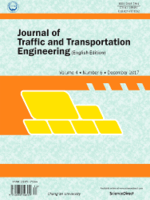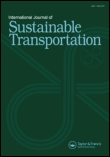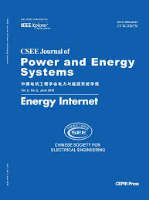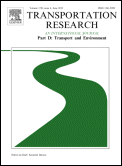
World Electric Vehicle Journal
Scope & Guideline
Transforming Transportation Through Electric Innovation
Introduction
Aims and Scopes
- Electric Vehicle Technology and Innovation:
Research on the latest technologies in electric vehicles, including powertrains, batteries, energy management systems, and charging infrastructure. - Sustainability and Environmental Impact:
Studies assessing the environmental benefits and challenges associated with electric vehicles, including life cycle assessments and carbon footprint evaluations. - Policy and Market Analysis:
Analysis of policies affecting electric vehicle adoption, market dynamics, and consumer behavior, aiming to identify drivers and barriers to EV integration. - Autonomous and Connected Vehicles:
Research on the integration of autonomous driving technologies with electric vehicles, including vehicle-to-grid (V2G) applications and smart transportation systems. - Energy Management and Efficiency:
Innovative methods and strategies for optimizing energy use in electric vehicles and related infrastructure, including charging strategies and grid integration. - Advanced Control Strategies:
Development and analysis of control algorithms for enhancing vehicle performance, safety, and user experience in electric and hybrid vehicles. - Battery Technologies and Management:
Research focused on battery design, performance optimization, state-of-charge estimation, and management systems for electric vehicle applications. - Infrastructure Development:
Studies on the design, implementation, and optimization of charging infrastructure, including wireless charging and renewable energy integration.
Trending and Emerging
- Smart Charging and Grid Integration:
Research on smart charging solutions and integration with renewable energy sources is on the rise, reflecting the need for efficient energy management and grid stability. - Advanced Battery Technologies:
Emerging studies are increasingly focusing on battery innovations, including solid-state batteries, fast-charging technologies, and second-life applications for retired batteries. - Artificial Intelligence and Machine Learning Applications:
The use of AI and machine learning in optimizing vehicle performance, predictive maintenance, and enhancing user experience is gaining significant attention. - Sustainability and Circular Economy:
Research is increasingly addressing the sustainability of electric vehicles, including recycling initiatives and life cycle assessments, to align with global carbon neutrality goals. - Autonomous Driving Technologies:
There is a growing interest in the convergence of electric vehicles and autonomous driving, exploring how these technologies can enhance mobility and safety. - Public Acceptance and Behavioral Studies:
Research is emerging that focuses on understanding consumer attitudes towards electric vehicles, including acceptance factors and the impact of public policies. - Electric Mobility in Urban Contexts:
Studies exploring the role of electric vehicles in urban mobility, including shared electric mobility solutions and their integration into public transport systems, are trending. - Cybersecurity in Electric Vehicles:
As vehicles become more connected, research on cybersecurity measures to protect vehicle data and ensure safe operation is increasingly important.
Declining or Waning
- Conventional Internal Combustion Vehicles:
Research on traditional combustion engine vehicles has decreased significantly as the focus shifts towards electric and hybrid technologies. - Basic EV Adoption Studies:
Earlier studies primarily focused on general EV adoption without deeper insights into specific barriers and consumer preferences are becoming less prevalent. - Low-Level Technical Research:
Research that does not integrate advanced methodologies or interdisciplinary approaches is waning as the field moves towards more complex and integrated studies. - Static Charging Technologies:
Papers focusing solely on static charging solutions are decreasing as the industry pivots towards dynamic and more integrated charging solutions like V2G. - Historical Comparisons:
Comparative studies between older vehicle technologies and current electric solutions are less frequent, as the focus has shifted to current technologies and future innovations.
Similar Journals

TRANSPORTATION RESEARCH PART C-EMERGING TECHNOLOGIES
Shaping the Next Generation of Transportation InsightsTRANSPORTATION RESEARCH PART C - EMERGING TECHNOLOGIES is a leading journal dedicated to the exploration and dissemination of innovative solutions in the field of transportation. Published by PERGAMON-ELSEVIER SCIENCE LTD in the United Kingdom, this journal has been pivotal in advancing the understanding of emerging transportation technologies since its inception in 1993. With a robust impact across multiple disciplines, it proudly holds a Q1 status in key categories such as Automotive Engineering, Civil and Structural Engineering, and Computer Science Applications, underscoring its vital role in shaping research and development in these areas. Researchers and practitioners are encouraged to engage with its rich repository of knowledge, which includes rigorous peer-reviewed articles aimed at addressing contemporary challenges in the transportation sector. While it currently does not operate under an Open Access model, the journal remains an essential resource for professionals and scholars committed to the field. With an affiliation to the prestigious Scopus database, TRANSPORTATION RESEARCH PART C stands as a beacon of scholarly excellence, driving the future of transportation technologies.

Journal of Traffic and Transportation Engineering-English Edition
Exploring New Horizons in Traffic Management and Transportation Studies.Journal of Traffic and Transportation Engineering-English Edition, published by KEAI PUBLISHING LTD, is a leading open-access journal that has been disseminating valuable research in the realms of civil and structural engineering, as well as transportation studies since 2014. With a robust impact factor reflected by its prestigious Q1 rankings in both Civil and Structural Engineering and Transportation, this journal stands at the forefront of innovation and scholarship, featuring contributions from experts across the globe. The journal is particularly noted for its practical and theoretical advancements in traffic and transportation engineering, making it indispensable for researchers, industry professionals, and students aiming to deepen their understanding of these critical fields. Dedicated to providing a platform for high-quality interdisciplinary research, the Journal of Traffic and Transportation Engineering embraces the principles of open access, ensuring that all published articles are freely available to foster knowledge sharing and collaboration within the community. With its headquarters located in Beijing, China, the journal continues to push boundaries and set new standards in the field of traffic and transportation research.

SAE International Journal of Commercial Vehicles
Leading the Charge in Automotive Research and DevelopmentSAE International Journal of Commercial Vehicles, published by SAE International, stands at the forefront of automotive engineering research, fostering innovation and development in the commercial vehicle sector. With an ISSN of 1946-391X and an E-ISSN of 1946-3928, the journal plays a critical role in disseminating high-quality research, theoretical advancements, and practical applications across various facets of commercial vehicles. As part of the notable SAE publication portfolio, it enjoys a respectable 2023 Q3 ranking within the automotive engineering category and holds a significant position at Rank #72/125 in Scopus, reflecting its growing impact and relevance. The journal's themes encompass innovative technologies, safety advancements, and regulatory developments, providing researchers and industry professionals with vital insights essential for tackling contemporary challenges. Though currently not an open-access publication, its contribution to the engineering community is invaluable, paving the way for future studies and collaborative efforts in the automotive field.

Smart Grids and Sustainable Energy
Pioneering Research for Smart Energy SystemsSmart Grids and Sustainable Energy, published by SPRINGER NATURE, is a pivotal open-access journal dedicated to advancing the knowledge and application of smart grid technologies and sustainable energy solutions. Serving as a key resource in the fields of Economics and Econometrics, Electrical and Electronic Engineering, and Energy Studies, this journal aims to facilitate interdisciplinary collaboration and innovation. With a commendable Q2 ranking in multiple categories as of 2023, including a top percentile placement in Economics and Econometrics and Electrical Engineering, the journal underscores its significance in driving forward research that combines economic viability with technological advancement. Researchers, professionals, and students will find a wealth of scholarly articles designed to expand understanding of the complex interplay between energy systems, sustainability, and economic factors. For those interested in cutting-edge research with high visibility due to its open-access policy, Smart Grids and Sustainable Energy is an essential addition to the academic landscape.

Smart Cities
Pioneering Research in Urban Technological InnovationSmart Cities is an esteemed academic journal published by MDPI, dedicated to the interdisciplinary exploration of urban innovation through advanced technologies, particularly in the realms of Artificial Intelligence, Electrical and Electronic Engineering, and Urban Studies. Since its inception in 2018, the journal has established itself as a prominent source of cutting-edge research, maintaining a commendable ranking within the top quartile (Q1) across its focus areas. With an impressive impact factor reflective of its influence—ranked 6th out of 279 in Urban Studies and within the top 15% in related engineering and computer science fields—the journal ensures accessibility to its content through an Open Access model, enabling researchers, professionals, and students from around the globe to engage with and contribute to the ongoing dialogue about the future of smart urban environments. Situated in Switzerland, the journal is positioned at the nexus of innovation and urban development, making it an indispensable resource for those seeking to advance knowledge and applications in smart city initiatives.

Frontiers in Future Transportation
Leading the Charge in Transportation ResearchFrontiers in Future Transportation, published by FRONTIERS MEDIA SA, is an influential Open Access journal that has been at the forefront of research since its inception in 2020. With an ISSN of N/A and E-ISSN 2673-5210, this journal provides a comprehensive platform for cutting-edge studies in the field of transportation, encompassing urban studies, automotive engineering, and innovative control systems. Ranking impressively in Scopus with notable percentiles—61st in Urban Studies, 51st in Automotive Engineering, and others—it underscores its significance within the scholarly community. The journal is committed to advancing the discourse surrounding sustainable and smart transportation solutions that address the challenges of future mobility. By offering unrestricted access to research, it invites contributions from researchers, professionals, and students alike, fostering collaboration and disseminating knowledge pivotal to transforming transportation systems globally. With its headquarters based in Lausanne, Switzerland, Frontiers in Future Transportation is poised to make substantial contributions to the evolving landscape of transport research through 2024 and beyond.

International Journal of Sustainable Transportation
Fostering Sustainable Practices for a Better WorldInternational Journal of Sustainable Transportation, published by Taylor & Francis Inc, stands at the forefront of research in sustainable mobility, addressing critical challenges within the fields of engineering, environmental science, and urban planning. With ISSN 1556-8318 and E-ISSN 1556-8334, this journal is recognized for its exceptional quality, evidenced by its Q1 rankings across multiple categories including Automotive Engineering, Civil and Structural Engineering, Environmental Engineering, and Transportation, as well as a notable presence in Renewable Energy and Sustainability. Its impact is further amplified by impressive Scopus rankings, securing top positions in various fields, ensuring that it serves as a pivotal resource for researchers, practitioners, and policymakers dedicated to advancing sustainable transportation solutions. The journal actively disseminates cutting-edge research that informs sustainable practices worldwide, thus contributing to the development of greener transportation methods. As it continues its mission from 2007 to 2024, International Journal of Sustainable Transportation remains essential for anyone looking to explore innovative approaches to the transportation challenges of our time.

CSEE Journal of Power and Energy Systems
Connecting Ideas, Fueling ProgressCSEE Journal of Power and Energy Systems is a leading peer-reviewed academic journal published by the China Electric Power Research Institute, dedicated to advancing innovations in the fields of electrical and electronic engineering, energy systems, and materials science. With an impressive impact factor and recognition as a Q1 journal in its respective categories in 2023, it ranks among the top in Electrical and Electronic Engineering, Electronic, Optical and Magnetic Materials, and General Energy, showcasing its critical role in disseminating high-quality research. Since its transition to Open Access in 2015, the journal has made significant scholarly work freely accessible to researchers, professionals, and students globally, promoting collaboration and knowledge sharing across disciplines. The journal invites contributions that address contemporary challenges and innovations in power and energy systems, reflecting its commitment to supporting the sustainable development of energy resources and technologies.

TRANSPORTATION RESEARCH PART D-TRANSPORT AND ENVIRONMENT
Elevating interdisciplinary research in transport and environmental issues.Transportation Research Part D: Transport and Environment is a premier academic journal published by Pergamon-Elsevier Science Ltd, dedicated to advancing knowledge in the fields of civil and structural engineering, environmental science, and transportation. With an impressive Impact Factor and ranked in the Q1 category for 2023 across multiple disciplines, this journal serves as a critical resource for researchers, professionals, and students interested in the intersections of transportation systems and environmental challenges. Spanning the years from 1996 to 2024, the journal features innovative studies that address pressing transportation and environmental issues, fostering interdisciplinary collaboration and insights. Although not an open-access journal, articles published in Transportation Research Part D are accessible through institutional databases, making significant contributions to academia and practice in the UK and globally. Scholars looking to stay at the forefront of research related to sustainable transport solutions and their implications for the environment will find this journal indispensable.

Transportation Safety and Environment
Advancing safety and sustainability in transportation.Transportation Safety and Environment is an esteemed open-access journal published by Oxford University Press, dedicated to advancing the field of transportation safety and environmental sustainability. Since its inception in 2019, the journal has rapidly gained recognition with an impressive Q2 category ranking in Control and Systems Engineering, Engineering (miscellaneous), and Safety, Risk, Reliability and Quality as of 2023. With an E-ISSN of 2631-4428, it provides a platform for high-quality research that addresses critical safety challenges and environmental impact within the transportation sector, covering a wide array of topics from vehicle safety measures to ecological considerations in transportation infrastructure. The journal’s open-access model promotes widespread distribution and accessibility of research findings, enabling researchers, professionals, and students to engage with the latest advancements and contribute to future developments in the field. Located in the heart of the United Kingdom at Great Clarendon St, Oxford OX2 6DP, England, Transportation Safety and Environment stands at the forefront of fostering innovative solutions for safer and more sustainable transportation practices worldwide.